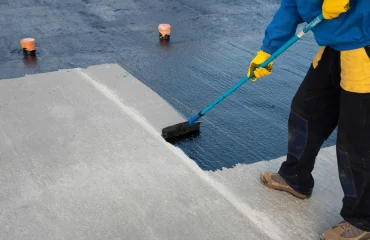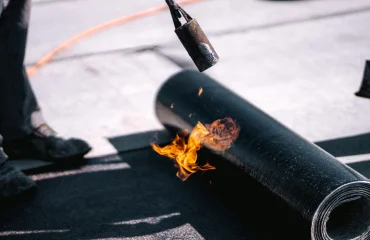The importance of waterproofing in buildings – BUILDINGS WITHOUT WATERPROOFING VERTICAL GRAVES”
Stating that non-waterproof buildings are almost “vertical graves” because of their rusting and rotten foundation irons, they are easily destroyed in an earthquake, Civil engineer Denizhan barber said:
“After the earthquake, 79 percent of 55,651 residences and workplaces inspected by the Istanbul Metropolitan Municipality Damage Assessment Commission were found to be damaged. In 64 percent of these buildings, the cause of damage was corrosion caused by moisture. In this earthquake alone, according to official figures, nearly 20 thousand people died, thousands were injured or maimed. 16 million people were affected by the earthquake in one way or another. If these buildings had been waterproofed, we could have survived a disaster of this scale with far fewer injuries. Research clearly reveals that 64 percent of these destroyed buildings would have survived had they been waterproofed. That is, deaths and injuries would decrease at the same rate. Corroded and rusted iron turns into dust at the slightest jolt. In the earthquakes we experienced, most of the buildings were destroyed like this. So destruction starts from the ground up. This means that more buildings, or rather buildings without waterproofing, kill more than earthquakes.”
FOUNDATION INSULATION IN BUILDINGS
Water-moisture insulation in buildings; It is done in order to prevent water or moisture from damaging a part of the structure or the volumes it covers.
The purpose of the waterproofing in the foundation and basement walls is to protect the building from water under normal conditions and to protect the concrete from corrosion by the chemicals found in the soil and having the opportunity to rise up to the structure with groundwater.
The formation of water or moisture is due to many different events. For this reason, the foundation system and waterproofing system should be determined according to the water situation on the ground at the project stage.
Reasons such as water-moisture formation, load of the building, different ground movements, penetration of surface waters into the foundation bed can be given. It is very difficult to predict exactly when this will happen. Regardless of the type of floor on which the building sits, water insulation should be applied to the foundation and basement walls of all structures, since water-moisture formation is caused by different reasons.
Waterproofing benefits
- Waterproofing increases the life and durability of your building.
- Water dripping from the ceilings between the apartments, damp or mold formation on the side walls are completely prevented and all such construction problems are eliminated.
- Rain or flood waters that may enter from outside remain outside the building thanks to the insulation. Negative weather conditions are prevented from damaging your building.
- It expands your comfort zone by preventing moisture and odor that may occur on the floor or walls in your home, basement, balcony and other living spaces.
- You are surrounded by plumbing lines in almost every part of your building. You can prevent bad odors and polluted waters that may arise due to damage to these lines with waterproofing. In this way, you do not have to worry about larger and longer-lasting problems that may occur.
- If you live in an earthquake-prone area, you know how important it is to take good care of your building. By choosing the right insulation methods, you can protect your building from external factors that keep the life of your building short, and at the same time, you can prevent the building from becoming earthquake resistant by aging.
- You do not need to spend any of your vacation days on long and tedious repair processes, as you prevent potential problems by using waterproofing techniques.

 Türkçe
Türkçe 

